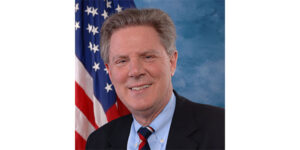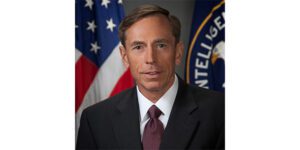Attorney General Mike Hunter, appointed when predecessor Scott Pruitt was appointed EPA Administrator in 2017. Had served as Pruitt’s first assistant attorney. Served six years as a Republican member of the Oklahoma House of Representatives. Served as Oklahoma’s Secretary of State then Secretary of Oklahoma’s Commissioners of the Land Office.
Transcript
John C.: Good morning, America. This is The Cats Roundtable. John Catsimatidis here. Sunday morning … What’s going on in our country? Finally, Purdue Pharmaceuticals, their opioids are killing more people then people know. They’re killing more people than guns are killing people … has been brought to justice in Oklahoma. With us this morning is Oklahoma attorney general, Mike Hunter. Good morning AG Hunter, how are you?
Mike Hunter: Well, Good morning. I’m bright eyed and bushy tailed this morning.
John C.: Tell us, do pharmaceuticals … my expression in New York here is that they’re killing more people than guns are killing, and you finally settled up with them and brought them to justice. Tell us all about it.
Mike Hunter: In 2017, June 30 to be exact, we filed a lawsuit naming multiple opioid manufacturers around the country, including their subsidiaries. One of the defendants, of course, was Purdue Pharma. As this lawsuit’s progressed and these defendants have done everything that they could to throw a wrench in the machinery with regard to the progression of our suit, with regard to our discovery efforts, but with the great team that we have here, we have been able to pursue the evidence, to proceed with our pre-trial activity, tech depositions, we’re on track, despite the defendants trying to get the case stayed. They asked our supreme court to enter a rip that would stay the proceeding. We were successful in fending that off just a couple of weeks ago.
Mike Hunter: And where we ended up with Purdue is we’ve been in court-ordered mediation settlement discussions for the last six to eight months, and their admonition to us and our team was that we did not want to go to trial in Oklahoma, and there were a variety of reasons why they don’t. The trial’s going to be televised, the first opportunity the public’s going to have to see a lot of the evidence that we’ve collected and other AG’S are also putting together as their trials progress. So the tough call here is how do we do something meaningful with Purdue and get them to avoid bankruptcy, because that actually would have stayed our trial out here.
Mike Hunter: As we work through it, very tough, I almost say, bare-knuckled exchanges with the company, we came up with a design that we think makes sense for not only the state, but the country, and that is to fund, in a very meaningful way, a program here in Oklahoma at Oklahoma State, at the Oklahoma State Health Science Center in Tulsa. They started a program two years ago. It’s the Health Science Center of Wellness and Recovery Program, and it is laser-focused on developing the best science, doing the best possible research around addiction treatments so that we can get people well.
Mike Hunter: Thousands of people are addicted in the state as a result of the oversupply and over-prescribing of opioids. So we really saw this as an important piece to how not only Oklahoma but the country begins to get a handle on the epidemic and get people well.
Mike Hunter: So it’s one thing to throw a lot of money at this problem, it’s another thing to know that the deployment of funds is going to programs and services that really are designed to be effective and get people back on the straight and narrow. So it was a tough call, we were prepared for trial with Purdue, as we are with the other three remaining defendants. But at the end of the day, we had to make a choice between zero and the company going into bankruptcy and avoiding that … avoiding the, as I say, the stay that would have occurred in our trial as a result of bankruptcy, but getting a very meaningful settlement that is really going to move the needle, as I say, not only in the state, but we think, with regard to the rest of the country. So that’s kind of the readers digest condensed version of where we are here in the state.
John C.: Now, attorney general, they were paying bonuses to their salesmen to push more and more drugs. What makes him different than the drug dealer from Mexico, Al Cappa
Mike Hunter: Well, our attitude out here, with regard to drug dealing, is it’s one thing if you’ve got an addiction and you are being prosecuted for a possession crime, it’s another if you’ve decided to be entrepreneurial about this stuff and you make a conscious calculated decision to sell poison to others and those folks end up in the emergency room, or worse yet on a table in the morgue, you’re committing a violent crime. So we took this activity very seriously. There are a number of great books out there that I would encourage your viewers to look at. Dreamland, Dopesick, are two that I’ve read that I think are really good expositions of the background of all this.
Mike Hunter: So your analogy is apt and we have taken this step very seriously. A number of states have proceeded against the Sackler family. They actually were a part of our settlement. But the most important thing for us as we modeled all of this was we’ve got thousands of people in the state that really need treatment, that really need to get into programs, and in order to get that process jump-started, we thought this investment in the health and recovery, the wellness and recovery program, was a real important part of it.
Mike Hunter: With regard to future judgments, we’re really hopeful that that’s going to provide, in a very aggressive way, a level of funding as a result of settlementary judgments that can get our fellow citizens out here, over their addiction, and back on the straight and narrow. But I would not contest the appropriateness or illustrative import of the analogy you draw between a drug dealer and the decisions these companies made knowing these drugs were addictive and misrepresenting their addictive qualities to prescribers for decades.
John C.: What do you think the next step is going to be? Is my statement true? Have there been more drug deaths in Oklahoma then deaths by guns?
Mike Hunter: There certainly has been. I guess the one index that we’ve got here that I’m confident about is that there are more deaths contributable in Oklahoma and nationally to overdoses then to traffic accidents, and so that’s a stark data point and it’s certainly testimony to the depth and breadth of this problem and how it needs to be taken seriously. With regard to next steps, I will say this about our docs out here in Oklahoma, they’ve really been great collaborators as time has passed and the healthcare community has awakened to the deceit and the, as I say, multi-decade fraud that’s been visited on them in regards to providing false research, pseudo-science, they’ve been incredibly helpful and heroic in helping us get outlaws changed here in Oklahoma so that we’ve got more control of what were prescribing, more control over the supply of pills that comes into the state.
Mike Hunter: So where we go from here is there’s got to be recognition that opioids are not appropriate, and this is consistent with CDC guidelines. They’re not appropriate in all but a few cases for chronic pain. They’re appropriate in a very, very limited footprint for chronic pain, subsequent to surgery and they are appropriate for palliative care and then there’s another subset of patients whose conditions are so severe, and unique that opioids are … they’re only alternative, but with regard to the wide swap of Americans, other patients, there just has to be this recognition that I think we have come to here in the state, particularly on the side of decision makers, prescribers, that we’ve got to be incredible careful with regard to the prescribing opioids for anything but acute pain, as I … an example I gave you is on the back side of surgery.
Mike Hunter: 1 out of every 4, or 1 out of every 5 people, whether they know it or not, have a vulnerability to addiction. Whether it’s drugs or alcohol. And there’s no test for that that science has come up with. So, in so many cases, patients were unwittingly, and there’s several here that are near and dear to my heart. We had a great football player out here, Austin Box, had injuries, was prescribed opioids, he had that vulnerability, became addicted and died of an overdose after graduation here at OU. And he was destined for a great career in pro football.
Mike Hunter: So the important point I guess I would leave you with in regard to the short discussion I’ve just had is the 1 out of every 4, 1 out of every 5 frequency with respect to people who have this vulnerability and don’t know it, and then they’re prescribed opioids and become addicted. That happens and has happened way too many times, and as far as we’re concerned, that’s the most important thing that we’re trying to address here is you can’t play Russian roulette with people’s lives, because there’s no science around determining whether you’re in that vulnerable category.
John C.: We’re almost out of time, but I got one minute left and I got a very important question for you.
Mike Hunter: Okay.
John C.: They bragged that they put out hundreds of millions of dollars in political contributions. Is there a list of what politicians they owned around the country?
Mike Hunter: Well, with regard to politicians they own, that’s a fairly easy internet search. I would be reluctant to group every politician who’s taken contributions from Big Pharma, but facts speak for themselves, and the largest, in terms of funding, the largest actor on Capitol Hill in Washington by a factor of three or four is Big Pharma. I want to say that Big Pharma has spent twice as much in a recent year as energy or financial services on Capitol Hill.
Mike Hunter: So it’s a very powerful influence in Washington. Certainly, I don’t want to group every pharmaceutical with the defendants in our case, but there really needs to be more attention to how expensive, and how expensive drugs are making healthcare in this country. There really needs to be a coordinated, thoughtful, comprehensive view of all components of how pharmaceuticals are deployed to Americans, because there’s no question in my mind that that lobby’s so strong, that there’s been slippage with regard to regulatory oversight, and that’s got to be an important function for the House and Senate in Washington D.C. going forward in my judgment. We’re doing what we can out here, the whole company’s accountable when they’re clearly breaking the law, but with regard to the policy of all this, the piece of this, this healthcare policy, Congress has got to do more.
John C.: Oklahoma attorney general, Mike Hunter, thank you so much for what you do for Oklahomians, and all Americans and God bless you and let’s catch up again.
Mike Hunter: Very good. Well, God bless you and God bless all your viewers. Everybody be careful.
John C.: Thank you. This is The Cats Roundtable, we’ll be right back.
Tune in to The Cats Roundtable with John Catsimatidis every Sunday morning at 9 am in New York on 970 AM: The Answer!, or find a station in your city by clicking here. Can’t get to a radio? No broadcast in your city yet? Listen online! The show is streamed live at www.am970theanswer.com or on-demand at www.catsroundtable.com.







